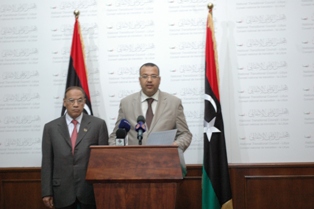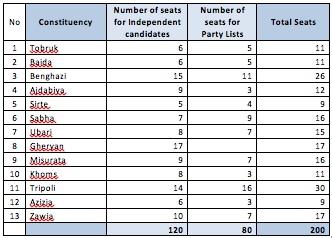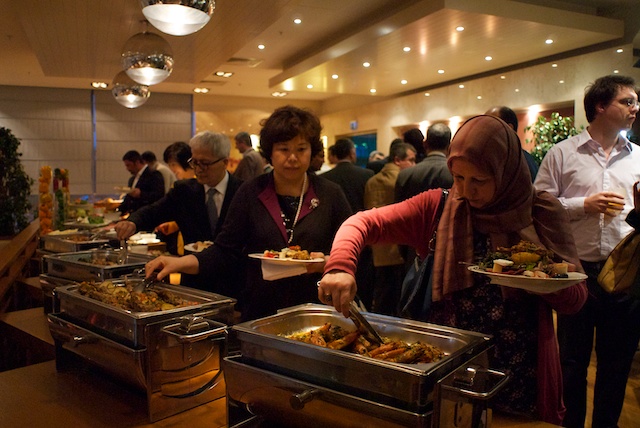By Sami Zaptia.
Tripoli, March 22: Libya’s National Transitional Council (NTC) issued law No. 14 on Wednesday March 21 setting set out . . .[restrict]the election constituencies for the June Constitutional Assembly elections.

Abdulhadi Shawish, member of the Election Committee of the NTC, revealed the two articles of the new law at a press conference in Tripoli. Article One of Law No. 14 stipulated that Libya will be divided into 13 main constituencies and listed the smaller districts as well as breakdown of the number seats per constituency to be contested by individuals and party list in (see below).
Article Two stipulated that the National Election High Commission was instructed to enforce this law as of its date of publication.
The Assembly will have 200 representatives elected from the 13 mega constituencies, with Greater Tripoli for example, electing 30 members. Greater Tripoli will be constituency number 11 and will include Garabuli, Tajura, Souk il Juma, Tripoli Central, Hay Al-Andulus, Busleem, Ain Zara and Janzoor.
This news of tangible action by the Libyan authorities regarding the June elections is expected to be be greeted with relief both at home and abroad. Many Libyans had felt that the authorities have been slow and very lukewarm in preparations for the elections. There were fears that they might have to postpone them as a result — a move that was seen as potentially destabilizing.
However, it has been reported that there had been gentle external pressure put on the Libyan authorities to hold the elections on time, even if at the cost of their quality.
Locally, Libyans are yearning for a proactive strong government which feels that it has a public mandate to tackle the numerous contentious issues facing the nation. For months now, Libyan officials have used the post-war chaos and lack of funding as the stock defence for their ineffectiveness.
However, armed with the 2012 record LD 68.5 billion budget and a fast improving security and general administrative climate, Libya’s academically and technocratic-laden government will find it increasingly more difficult to justify any further lackluster performance.
Save for the various local elections held in different parts of Libya since the revolution, headed by the highly successful Misrata local elections, the June elections will be the first national elections to be held in Libya for over four decades. They would set Libya forth on the road of democracy – a road that Libya is hoping to travel down along the lines of its neighbor Tunisia.









